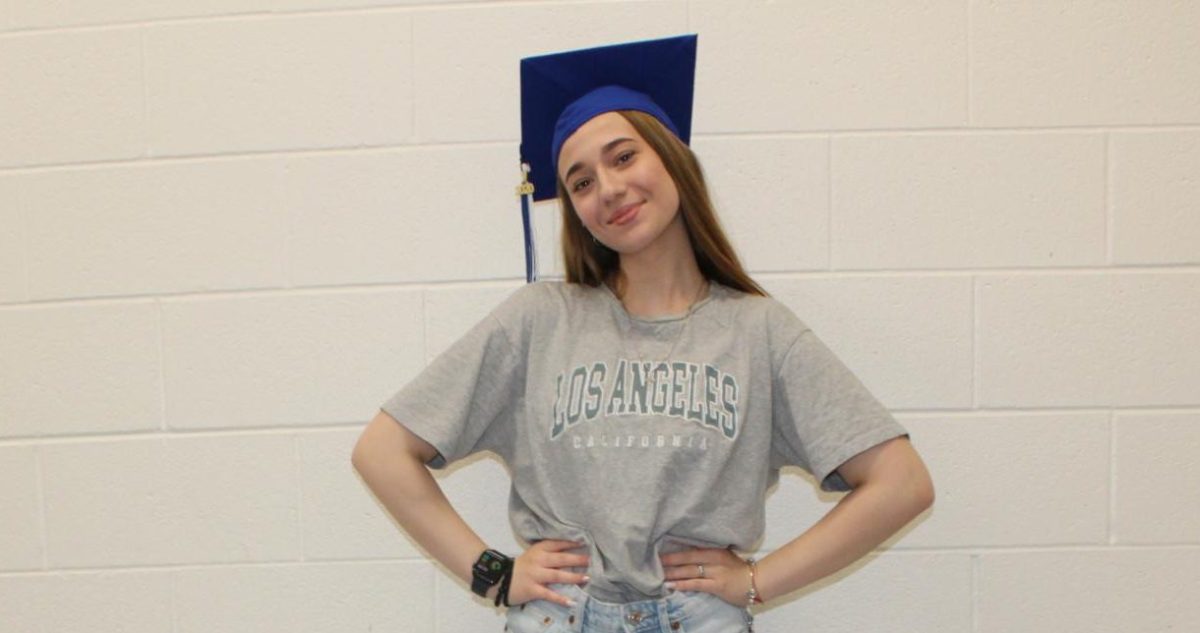Anastasiia Veretyuk, senior, who is from Ukraine, is learning how to adapt to her new life in the US after a long immigration process.
After fleeing from her hometown of Volochysk following the break out of the Russo-Ukraine war, and being forced to leave behind their cat, Ryzhik, Veretyuk fled to Poland for her sophomore year before moving to the US with her mother and father for her junior and senior year.
Veretyuk came to the US without knowing how to speak English, making it difficult for her to find employment, communicate with others, and make friends beyond the small Ukrainian community in Lake Zurich.
“When I came to Lake Zurich, it was so hard because I know Polish and Ukrainian [but] I need to speak English [but it’s] so hard and I’m confused [all the time],” Veretyuk said.
Many jobs require the ability to communicate with either colleagues or customers, which is one of the biggest obstacles. This language barrier continues to be one of the most difficult challenges she experiences daily.
“Google Translate just provides a basic translation and sometimes [that can be] difficult,” DJ Angelaccio, an English Language Learners teacher, said. “[Communication] can be really complex, depending on what you are translating. For example, in physical science, sometimes those science-y terms [do not translate] properly. A lot of my students in that class will be like ‘well, what does this really mean?’”
Angelaccio enjoys watching the progressing communication skills that his students, one of them being Veretyuk, make throughout the year. Even a simple greeting in the morning is a very important part of their language journey and shows their increased comfortability in the language, according to Angelaccio.
“[Veretyuk] constantly asks questions when she doesn’t understand; I never see her down,” Angelaccio said. “She is always riding the wave [and] she is a really hard worker. I think she shows resilience every day by just being willing to enter that classroom and hear what we all have to say [through a] different perspective and try to understand something as complex as government through a second language.”
While communication can be a challenge in the classroom, Veretyuk, like many Ukrainian students, finds the education system here to be much easier. In Ukraine, there are 11 years of extremely rigorous years of school, compared to the easier 12 years in the United States education system.
“Here [school] is easy. In Ukraine, [its] so hard because the math [is much more difficult],” Veretyuk said. “[Its] so different.”
In addition to an easier school curriculum, Veretyuk enjoys being able to drive at a younger than she would have to be in Ukraine.
“I like [that] you can drive when you [are] 16 years old. It’s so cool because in Ukraine we begin [driving at] 18 years old,” Veretyuk said.
Veretyuk’s resilient personality has created her desire to pursue a career in the competitive field of medicine. Veretyuk is not sure what next year looks like for her, but she is hoping to apply to US universities for the fall semester of 2025.
“Since I was a child, I wanted to be like my sister and at that time [she] was a doctor. I wanted to treat all my friends and family when someone was sick and [even] my toys,” Veretyuk said.
Although Veretyuk’s journey has been difficult to navigate, she is excited to graduate high school. She is hopeful she will be able to see her cat alive and reunite with him soon. Veretyuk will continue to bring her resilience into every challenge.


